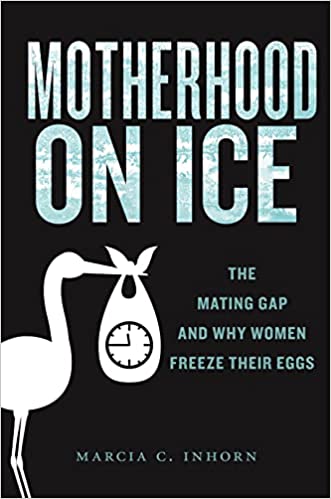 Motherhood on Ice: The Mating Gap and Why Women Freeze Their Eggs
Motherhood on Ice: The Mating Gap and Why Women Freeze Their Eggs
Why are women freezing their eggs in record numbers? Motherhood on Ice explores this question by drawing on the stories of more than 150 women who pursued fertility preservation technology. Moving between narratives of pain and empowerment, these nuanced personal stories reveal the complexity of women’s lives as they struggle to preserve and extend their fertility.
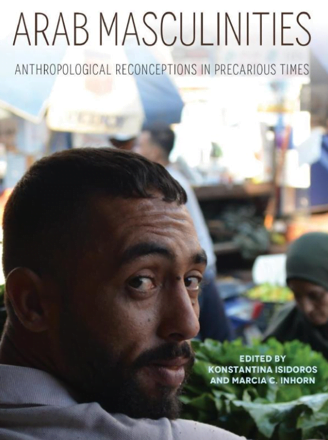 Arab Masculinities: Anthropological Reconceptions in Precarious Times
Arab Masculinities: Anthropological Reconceptions in Precarious Times
Arab Masculinities provides a groundbreaking analysis of Arab men’s lives in the precarious aftermath of the 2011 Arab uprisings. It challenges received wisdoms and entrenched stereotypes about Arab men, offering new understandings of rujula, or masculinity, across the Middle East and North Africa.
Since the Iraq war, the Middle East has been in continuous upheaval, resulting in the displacement of millions of people. Arriving from Afghanistan, Iraq, Palestine, and Syria in other parts of the world, the refugees show remarkable resilience and creativity amidst profound adversity. Through careful ethnography, this book vividly illustrates how refugees navigate regimes of exclusion, including cumbersome bureaucracies, financial insecurities, medical challenges, vilifying stereotypes, and threats of violence. The collection bears witness to their struggles, while also highlighting their aspirations for safety, settlement, and social inclusion in their host societies and new homes.
 Waithood: Gender, Education, and Global Delays in Marriage and Childbearing
Waithood: Gender, Education, and Global Delays in Marriage and Childbearing
The concept of “Waithood” was developed by political scientist Diane Singerman to describe the expanding period of time between adolescence and full adulthood as young people wait to secure steady employment and marry. The contributors to this volume employ the waithood concept as a frame for richly detailed ethnographic studies of “youth in waiting” from a variety of world areas, including the Middle East, Africa, Asia, Europe, Latin America, and the U.S, revealing that whether voluntary or involuntary, the phenomenon of youth waithood necessitates a recognition of new gender and family roles.
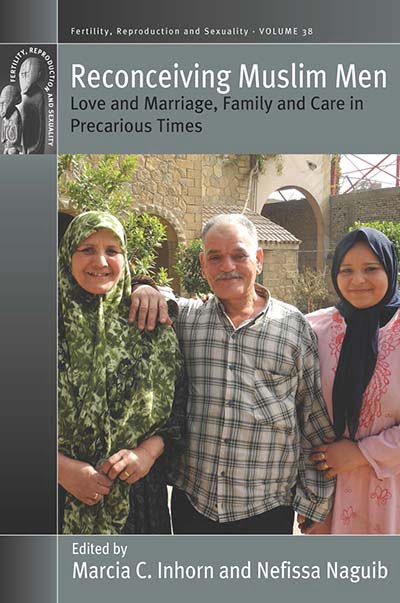 RECONCEIVING MUSLIM MEN: Love and Marriage, Family and Care in Precarious Times
RECONCEIVING MUSLIM MEN: Love and Marriage, Family and Care in Precarious Times
This volume provides intimate anthropological accounts of Muslim men’s everyday lives in the Middle East, Asia, Africa, and diasporic communities in the West. Amid increasing political turmoil and economic precarity, Muslim men around the world are enacting nurturing roles as husbands, sons, fathers, and community members, thereby challenging broader systems of patriarchy and oppression. By focusing on the ways in which Muslim men care for those they love, this volume challenges stereotypes and showcases Muslim men’s humanity.
 America’s Arab Refugees: Vulnerability and Health on the Margins
America’s Arab Refugees: Vulnerability and Health on the Margins
In the U.S., Arabs are challenged by discrimination, poverty, and various forms of vulnerability. Inhorn shines a spotlight on the plight of resettled Arab refugees in the ethnic enclave community of “Arab Detroit,” Michigan. Sharing in the poverty of Detroit’s Black communities, Arab refugees struggle to find employment and to rebuild their lives. Iraqi and Lebanese refugees who have fled from war zones also face several serious health challenges. Uncovering the depths of these challenges, Inhorn’s ethnography follows refugees in Detroit suffering reproductive health problems requiring in vitro fertilization (IVF). Without money to afford costly IVF services, Arab refugee couples are caught in a state of “reproductive exile”—unable to return to war-torn countries with shattered healthcare systems, but unable to access affordable IVF services in America. America’s Arab Refugees questions America’s responsibility for, and commitment to, Arab refugees, mounting a powerful call to end the violence in the Middle East, assist war orphans and uprooted families, take better care of Arab refugees in this country, and provide them with equitable and affordable healthcare services.
 Cosmopolitan Conceptions: IVF Sojourns in Global Dubai
Cosmopolitan Conceptions: IVF Sojourns in Global Dubai
In their desperate quest for conception, thousands of infertile couples from around the world travel to the global in vitro fertilization (IVF) hub of Dubai. In Cosmopolitan Conceptions Marcia C. Inhorn highlights the stories of 220 reprotravelers from fifty countries who sought treatment at a “cosmopolitan” IVF clinic in Dubai. These couples cannot find safe, affordable, legal, and effective IVF services in their home countries, and their stories offer a window into the world of infertility—a world that is replete with pain, fear, danger, frustration, and financial burden. These hardships dispel any notion that traveling for IVF treatment is reproductive tourism. The magnitude of reprotravel to Dubai, Inhorn contends, reflects the failure of countries to meet their citizens’ reproductive needs, which suggests the necessity of creating new forms of activism that advocate for developing alternate pathways to parenthood, reducing preventable forms of infertility, supporting the infertile, and making safe and low-cost IVF available worldwide.
Using an entirely new conceptual vocabulary through which to understand men’s experiences and expectations at the dawn of the twenty-first century, this path-breaking volume focuses on fatherhood around the globe, including transformations in fathering, fatherhood, and family life. It includes new work by anthropologists, sociologists, and cultural geographers, working in settings from Peru to India to Vietnam. Each chapter suggests that men are responding to globalization as fathers in creative and unprecedented ways, not only in the West, but also in numerous global locations.
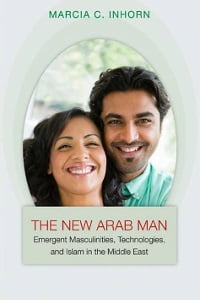 The New Arab Man: Emergent Masculinities, Technologies, and Islam in the Middle East
The New Arab Man: Emergent Masculinities, Technologies, and Islam in the Middle East
Middle Eastern Muslim men have been widely vilified as terrorists, religious zealots, and brutal oppressors of women. The New Arab Man challenges these stereotypes with the stories of ordinary Middle Eastern men as they struggle to overcome infertility and childlessness through assisted reproduction. Drawing on two decades of ethnographic research across the Middle East with hundreds of men from a variety of social and religious backgrounds, Marcia Inhorn shows how the new Arab man is self-consciously rethinking the patriarchal masculinity of his forefathers and unseating received wisdoms. This is especially true in childless Middle Eastern marriages where, contrary to popular belief, infertility is more common among men than women. Inhorn captures the marital, moral, and material commitments of couples undergoing assisted reproduction, revealing how new technologies are transforming their lives and religious sensibilities. And she looks at the changing manhood of husbands who undertake transnational egg quests–set against the backdrop of war and economic uncertainty–out of devotion to the infertile wives they love. Trenchant and emotionally gripping, The New Arab Man traces the emergence of new masculinities in the Middle East in the era of biotechnology.
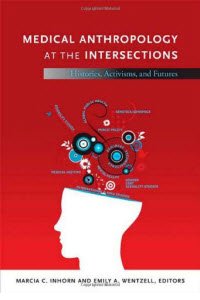 Medical Anthropology at the Intersections: Histories, Activisms, and Futures
Medical Anthropology at the Intersections: Histories, Activisms, and Futures
In this important collection, prominent scholars who helped to establish medical anthropology as an area of study reflect on the field’s past, present, and future. In doing so, they demonstrate that medical anthropology has developed dynamically, through its intersections with activism, with other subfields in anthropology, and with disciplines as varied as public health, the biosciences, and studies of race and ethnicity. Each of the contributors addresses one or more of these intersections. Some trace the evolution of medical anthropology in relation to fields including feminist technoscience, medical history, and international and area studies. Other contributors question the assumptions underlying mental health, global public health, and genetics and genomics, areas of inquiry now central to contemporary medical anthropology. Essays on the field’s engagements with disability studies, public policy, and gender and sexuality studies illuminate the commitments of many medical anthropologists to public-health and human-rights activism. Essential reading for all those interested in medical anthropology, this collection offers productive insight into the field and its future, as viewed by some of the world’s leading medical anthropologists.Contributors. Lawrence Cohen, Didier Fassin, Faye Ginsburg, Marcia C. Inhorn, Arthur Kleinman, Margaret Lock, Emily Martin, Lynn M. Morgan, Richard Parker, Rayna Rapp, Merrill Singer, Emily A. Wentzell
How and to what extent have Islamic legal scholars and Middle Eastern lawmakers, as well as Middle Eastern Muslim physicians and patients, grappled with the complex bioethical, legal and social issues that are raised in the process of attempting to conceive life in the face of infertility? This path-breaking volume explores the influence of Islamic attitudes on assisted reproductive technologies (ARTs) and reveals the variations in both the Islamic jurisprudence and the cultural responses to ARTs.
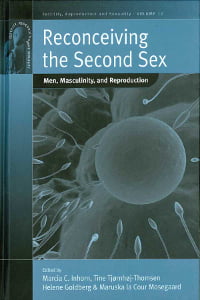 Reconceiving the Second Sex: Men, Masculinity, and Reproduction
Reconceiving the Second Sex: Men, Masculinity, and Reproduction
Extensive social science research, particularly by anthropologists, has explored women’s reproductive lives, their use of reproductive technologies, and their experiences as mothers and nurturers of children. Meanwhile, few if any volumes have explored men’s reproductive concerns or contributions to women’s reproductive health: Men are clearly viewed as the second sexA in reproduction. This volume argues that the marginalization of men is an oversight of considerable proportions. It sheds new light on male reproduction from a cross-cultural, global perspective, focusing not only upon men in Europe and America but also those in the Middle East, Asia, and Latin America. Both heterosexual and homosexual, married and unmarried men are featured in this volume, which assesses concerns ranging from masculinity and sexuality to childbirth and fatherhood.
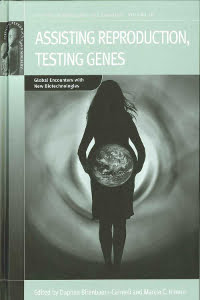 Assisting Reproduction, Testing Genes: Global Encounters With New Biotechnologies
Assisting Reproduction, Testing Genes: Global Encounters With New Biotechnologies
Following the routinization of assisted reproduction in the industrialized world, technologies such as in vitro fertilization, preimplantation genetic diagnosis, and DNA-based paternity testing have traveled globally and are now being offered to couples in numerous non-Western countries. This volume explores the application and impact of these advanced reproductive and genetic technologies in societies across the globe. By highlighting both the cross-cultural similarities and diverse meanings that technologies may assume as they enter multiple contexts, the book aims to foster understanding of both the technologies and the settings. Enhanced by cross-cultural perspectives, the book addresses the challenges that globalization presents to local understandings of science, technology, and medicine.
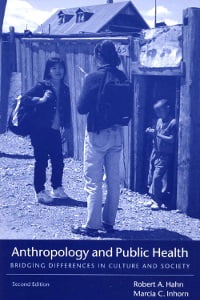 Anthropology and Public Health: Bridging Differences in Culture and Society
Anthropology and Public Health: Bridging Differences in Culture and Society
Many serious public health problems confront the world in the new millennium. Anthropology and Public Health examines the critical role of anthropology in four crucial public health domains: (1) anthropological understandings of public health problems such as malaria, HIV/AIDS, and diabetes; (2) anthropological design of public health interventions in areas such as tobacco control and elder care; (3) anthropological evaluations of public health initiatives such as Safe Motherhood and polio eradication; and (4) anthropological critiques of public health policies, including neoliberal health care reforms. As the volume demonstrates, anthropologists provide crucial understandings of public health problems from the perspectives of the populations in which the problems occur. On the basis of such understandings, anthropologists may develop and implement interventions to address particular public health problems, often working in collaboration with local participants. Anthropologists also work as evaluators, examining the activities of public health institutions and the successes and failures of public health programs. Anthropological critiques may focus on major international public health agencies and their workings, as well as public health responses to the threats of infectious disease and other disasters. Through twenty-four compelling case studies from around the world, the volume provides a powerful argument for the imperative of anthropological perspectives, methods, information, and collaboration in the understanding and practice of public health. Written in plain English, with significant attention to anthropological methodology, the book should be required reading for public health practitioners, medical anthropologists, and health policy makers. It should also be of interest to those in the behavioral and allied health sciences, as well as programs of public health administration, planning, and management.
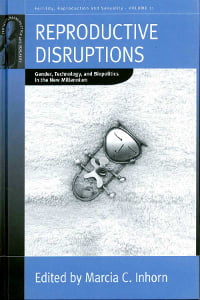 Reproductive Disruptions: Gender, Technology, and Biopolitics in the New Millennium
Reproductive Disruptions: Gender, Technology, and Biopolitics in the New Millennium
Reproductive disruptions, such as infertility, pregnancy loss, adoption, and childhood disability, are among the most distressing experiences in people s lives. Based on research by leading medical anthropologists from around the world, this book examines such issues as local practices detrimental to safe pregnancy and birth; conflicting reproductive goals between women and men; miscommunications between pregnant women and their genetic counselors; cultural anxieties over gamete donation and adoption; the contested meanings of abortion; cultural critiques of hormone replacement therapy; and the globalization of new pharmaceutical and assisted reproductive technologies. This breadth – with its explicit move from the local to the global, from the realm of everyday reproductive practice to international programs and policies – illuminates most effectively the workings of power, the tensions between women s and men s reproductive agency, and various cultural and structural inequalities in reproductive health.
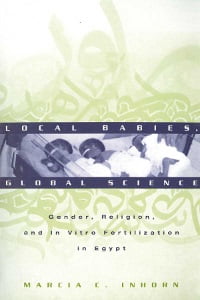 Local Babies, Global Science: Gender, Religion and In Vitro Fertilization in Egypt
Local Babies, Global Science: Gender, Religion and In Vitro Fertilization in Egypt
In the Arab World, motherhood is glorified, childlessness is socially unacceptable, and adoption is religiously prohibited. Local Babies, Global Science examines in vitro fertilization (IVF) among affluent couples in Egypt, and the implicatioins for both local Egyptians and global society. Inhorn’s work shows the transfer of IVF technology from Europe and America to Egypt reshapes the use of this science and leads to new cultural formations in Egypt. This book also offers a fascinating, eye-opening analysis of how Egyptians view the West – a timely contribution to the current conversation about the modern Islamic world.
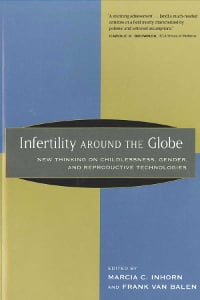 Infertility around the Globe: New Thinking on Childlessness, Gender, and Reproductive Technologies
Infertility around the Globe: New Thinking on Childlessness, Gender, and Reproductive Technologies
This exceptional collection of essays breaks new ground by examining the global impact of infertility as a major reproductive health issue, one that has profoundly affected the lives of countless women and men. Based on original research by seventeen internationally acclaimed social scientists, it is the first book to investigate the use of reproductive technologies in non-Western countries. Provocative and incisive, it is the most substantial work to date on the subject of infertility.With infertility as the lens through which a wide range of social issues is explored, the contributors address a far-reaching array of topics: why infertility has been neglected in population studies, how the deeply gendered nature of infertility sets the blame squarely on women’s shoulders, how infertility and its treatment transform family dynamics and relationships, and the distribution of medical and marital power. The chapters present informed and sophisticated investigations into cultural perceptions of infertility in numerous countries, including China, India, the nations of sub-Saharan Africa, Vietnam, Costa Rica, Egypt, Israel, the United States, and the nations of Europe.Poised to become the quintessential reference on infertility from an international social science perspective, Infertility around the Globe makes a powerful argument that involuntary childlessness is a complex phenomenon that has far-reaching significance worldwide.
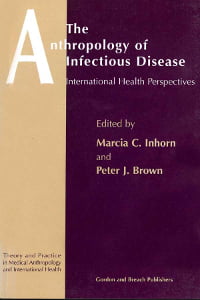 The Anthropology of Infectious Disease: International Health Perspectives
The Anthropology of Infectious Disease: International Health Perspectives
Anthropological contributions to the study of infectious disease and to the study of actual infectious disease eradication programmes have rarely been collected in one volume. In the era of AIDS and the global resurgance of infectious diseases such as tuberculosis and malaria, there is widespread interest and concern about the cultural, ecological and political factors that are directly related to the increased prevalence of infectious disease. In this book, the authors have assembled the growing scholarship in one volume. Chapters explore the coevolution of genes and cultural traits; the cultural construction of ‘disease’ and how these models influence health-seeking behaviour; cultural adaptive strategies to infectious disease problems; the ways in which ethnography sheds light on epidemiological patterns of infectious disease; the practical and ethical dilemmas that anthropologists face by participating in infectious disease programmes; and the political ecology of infectious disease.
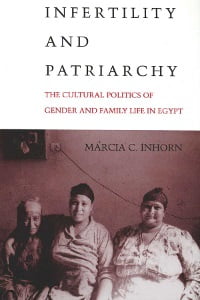 Infertility and Patriarchy: The Cultural Politics of Gender and Family Life in Egypt
Infertility and Patriarchy: The Cultural Politics of Gender and Family Life in Egypt
The social consequences of infertility place poor urban women in Egypt at the center of a web of tumultuous relationships with spouses, in-laws, and neighbors. Although Egyptian patriarchy is based on the central role played by men in reproduction, women are paradoxically blamed for failure to conceive, and they often face threats of divorce or polygyny, harassment, and community ostracism. Infertility and Patriarchy explore the lives of infertile women whose personal stories depict their daily struggle to resist disempowerment and stigmatization. Marcia C. Inhorn has produced a unique study of gender politics and family life in contemporary Egypt, concluding that the position of infertile women in Egyptian society is being determined by complex and countervailing pressures. As the influence of the patriarchal extended family wanes in urban areas, marital bonds strengthen. Yet, the Islamic valorization of motherhood as women’s exclusive role presents a potent threat to childless women. Infertility and Patriarchy is a companion volume to Inhorn’s Quest for Conception.
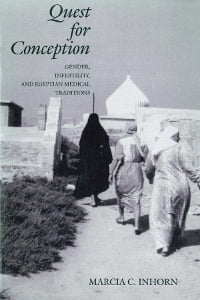 Quest for Conception: Gender, Infertility and Egyptian Medical Traditions
Quest for Conception: Gender, Infertility and Egyptian Medical Traditions
Although Western biomedicine is the dominant system in Egypt today, it represents only one of an array of therapeutic alternatives. Infertile women seek help on their medical pilgrimages-or their “search for children”- from both “biogynecologists” (practitioners of Western biomedicine) and “ethnogyecologists” (practitioners of indigenous ethnomedicine), often using the remedies of both simultaneously. Treatments of both types are often ineffective and sometimes harmful. Quest for Conception is the first comprehensive account of non-Western women’s experiences of infertility and is a novel study within the literature on Middle Eastern women.
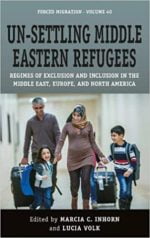

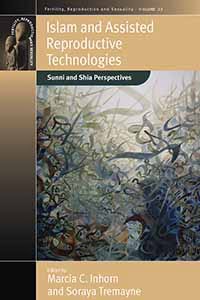 Islam and Assisted Reproductive Technologies: Sunni and Shia Perspectives (Fertility, Reproduction and Sexuality)
Islam and Assisted Reproductive Technologies: Sunni and Shia Perspectives (Fertility, Reproduction and Sexuality)